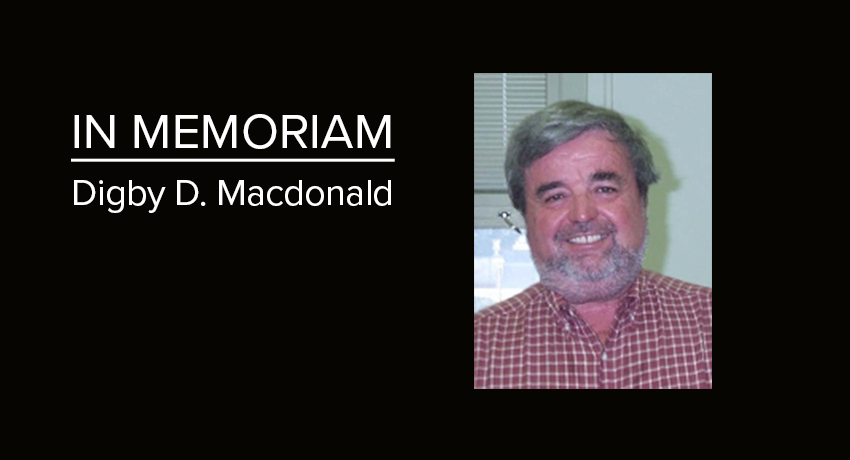In Memoriam: Digby D. Macdonald
Pioneer in corrosion science and electrochemistry remembered for groundbreaking research and global mentorship
By Jamie Oberdick
Digby D. Macdonald, an internationally recognized expert in electrochemistry and corrosion science and professor emeritus of materials science and engineering at Penn State, died June 12 in Berkeley, California. He was 82.
A leading figure in the field for more than five decades, Macdonald was known for his pioneering theoretical and experimental work, including the development of the Point Defect Model, which helped explain the behavior of passive oxide films, especially in nuclear environments.
Macdonald served as a distinguished professor in Penn State’s Department of Materials Science and Engineering from 2003 to 2012 and directed the university’s Center for Electrochemical Science and Technology. His career also included faculty appointments at The Ohio State University and, later, the University of California, Berkeley, where he was a professor-in-residence in the departments of materials science and engineering and nuclear engineering.
He also held leadership roles in research and development outside academia, including as laboratory director and vice president at SRI International from 1984 to 1991.
Macdonald’s contributions to corrosion science and electrochemical systems laid the foundation for improvements in energy storage, battery design, nuclear reactor safety and advanced materials. His research spanned electrochemical impedance spectroscopy, Kramers-Kronig transforms and high-temperature aqueous chemistry. He was widely regarded for his ability to bridge theory and practice, combining rigorous mathematical modeling with real-world engineering applications.
He co-authored numerous influential publications with his wife and longtime collaborator, Mirna Uquidi-Macdonald, a faculty member in Penn State’s Department of Engineering Science and Mechanics.
A Fellow of the Royal Society of New Zealand, the Royal Society of Canada and The Electrochemical Society, Macdonald received numerous honors throughout his career. These included the Frumkin Memorial Medal of the International Society of Electrochemistry in 2014, the U.R. Evans Award from the Institute of Corrosion in 2003 and the H.H. Uhlig Award from The Electrochemical Society in 2001. In 2011, he was nominated for the Nobel Prize in Chemistry.
At Penn State, he was awarded the Wilson Research Award from the College of Earth and Mineral Sciences in 1996 and also served as director of the Center for Advanced Materials and chair of the Metals Program.
Macdonald was born in New Zealand and maintained a strong connection to his roots. Outside the lab, he was an avid sailor, often taking friends and students sailing on the San Francisco Bay during his time at SRI and UC Berkeley.
Colleagues and former students described him as brilliant, humble and generous with his time and ideas. A committed mentor, he advised and inspired generations of graduate students and postdoctoral researchers across several continents.
He is survived by his wife, Mirna, and a global community of former students, collaborators and admirers who continue to build upon the scientific legacy he leaves behind.

